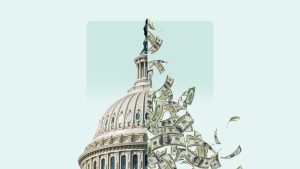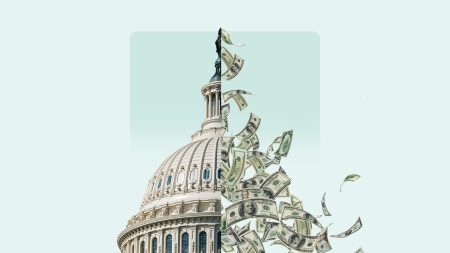Key takeaways
- It may be difficult to obtain a new loan after you enter a debt management plan, especially if you charge off some of your current debt.
- Many creditors report the details of a debt management plan to credit bureaus, which may impact your ability to qualify for a loan.
- If possible, complete a debt management plan (and see your credit score rise) before filing a loan application.
While credit counselors typically advise you to avoid taking on additional debt while on a debt management plan (DMP), it’s not impossible. Lenders evaluate your loan application after a holistic review of your credit and income, and many will not simply reject your application if you’re enrolled in a DMP.
“Many of our clients have successfully improved their credit while on a DMP, which can help them qualify for loans and achieve greater financial stability,” says Becky House, a director at nonprofit counseling agency American Financial Solutions (AFS). “However, whether someone can obtain a loan depends largely on their individual credit profile.”
So while it’s not impossible to get a loan while on a DMP, you may need to jump through extra hoops to prove you can handle additional debt.
Will a debt management plan affect your ability to get loans?
Lenders typically won’t deny your loan application strictly because you’re enrolled in a debt management plan or were in the past. However, being on a DMP can impact your eligibility in these scenarios:
- If your particular DMP agreement forbids you from taking on new credit before your repayment plan is complete.
- If a lender lessens (or “charges off”) your debt balance as part of your DMP and reports this action to the credit bureaus, damaging your credit report and score.
When evaluating your loan application, lenders might see a note on your credit report that you’re enrolled in a DMP. House says the language could be something like, “Account being paid through a third party.”
“This doesn’t affect your [credit] score directly, but lenders may see it during their review,” adds House, who has worked for AFS since 2001. “So, yes, it could prevent [you] from obtaining a new credit account.”
Even if you qualify for a loan while on a debt management plan, you could face costly bad credit loan rates. The higher your quoted interest rate, the more expensive it is to borrow.
Consider the following scenarios of borrowing a $10,000 personal loan with a five-year repayment term:
| Scenario | Interest rate | Monthly payment | Interest cost | Total cost |
| Your credit score has dipped due to a DMP charge-off. | 25% | $294 | $7,611 | $17,611 |
| You wait to apply for a loan until your credit has improved. | 15% | $238 | $4,274 | $14,274 |
Even a 10 percent change in interest has a large impact on how much you pay. Waiting until you have finished your debt management plan and improved your credit score may help you save thousands of dollars in interest over the life of a loan.
Personal loans
When considering your options, check personal loans rates from reputable lenders. Most will require good credit, stable income and a low debt-to-income ratio that isn’t harming your budget. You could make up for less-than-ideal marks on your credit report by applying with a qualified cosigner or seeking a secured loan that prioritizes your collateral over your credit standing.
Many lenders, particularly online companies, offer prequalification tools, so you can confirm your eligibility and check potential interest rates without submitting to a hard credit check.
Auto loans
Like personal loans, you must still meet lenders’ underwriting standards to qualify for an auto loan while on a debt management plan. The higher your credit score, the better your odds of approval. It also helps your odds of securing a competitive auto loan interest rate. For perspective, new car buyers had an average credit score of 755 in the third quarter of 2024, according to Experian.
That said, you may still qualify without good or excellent credit. Your loan-to-value (LTV) ratio, income and other factors will impact a lender’s decision. If you are struggling to find financing and need to buy a car soon, you may want to consider a bad credit auto loan to bridge the gap during your DMP.
Auto loan companies may also offer prequalification or preapproval. Preapproval may help you the most because it allows you to act like a cash buyer when negotiating at a dealership. In addition, a large down payment can also strengthen your auto loan application and reduce the amount you need to finance.
Student loans
Most types of federal student loans, with the exception of Parent PLUS Loans, don’t require a credit check. Private student loans, however, are credit-based. Banks, credit unions and other lenders rely on your credit history, among other financial factors, to determine your eligibility. A whopping 96% of undergraduate private loans originated for the 2024-2025 academic year were cosigned, according to Enterval Analytics.
If you are on a DMP, you may need to apply for a private student loan with a cosigner to qualify. Reach out to potential lenders to discuss your financing options — and as with any secondary education financing, exhaust your federal student loan opportunities first.
How does a debt management plan affect your credit?
When you establish a debt management plan, you’ll likely be asked to discontinue using your credit cards. Closing or deactivating these accounts can cause short-term harm.
“While this may cause an initial dip in your credit score, the primary goal of a DMP is to help you make consistent, on-time payments, reduce your balances and get out of debt,” says House. “Over time, these positive behaviors typically contribute to improving your credit scores.”
It’s important to note there’s a big benefit to being proactive with debt. If you realize you’re in over your head, consider setting up a DMP before you start missing payments. This way, you might dodge much of the negative impact to your credit.
“We have many clients who complete a DMP and tell us how much their credit has improved during that time frame. We have new homeowners, people who make auto purchases, and those who do take on additional debt all while staying on track with the DMP.”
Once your debt management plan is finished, you can take steps to improve your credit score. If borrowing a loan isn’t immediately necessary, this can help you score a lower interest rate — and over time, on-time loan payments will contribute to a better score.
Alternatives to a debt management plan
Before resorting to a debt management plan, consider other forms of debt relief that might have less of an impact on your borrowing ability and credit score.
Talk to your creditors
If you’re worried about missing debt payments, you aren’t obligated to enroll in a DMP or even speak to your lenders through a credit counseling service or debt relief company. You can reach out to your lenders directly to discuss your situation.
You might ask about the lender’s repayment relief options, potentially including:
- Waived fees.
- Accepted late payments or potential grace periods.
- Changing your payment due date.
- Temporarily deferring (or pausing) payments.
Getting back on track without relying on a debt management plan could put you in a better position to borrow again, and quicker.
Debt consolidation
Consolidating your debt means taking on a new, usually unsecured, personal loan to replace your existing accounts. As a result, you will have a single monthly payment to one creditor. Not only does this make keeping up with payments easier, but you will also lower your credit utilization ratio, which can help improve your credit score.
Debt consolidation can lower your monthly payment (if you extend your repayment term) and potentially lower the interest rate of your debt (if your credit has improved since you previously borrowed). Without strong credit, you could apply for a loan with a cosigner.
This might be a good alternative to borrowing a loan while enrolled in a DMP. After all, you could apply for a larger debt consolidation loan than you need to cover your existing debt, then use the remaining funds for your needed purpose.
Debt settlement
Some lenders might opt to settle your debt if they believe you have no realistic path forward to repayment. While paying less than you owe might sound like the ideal alternative, it’s not an option for many borrowers. And even if it is, settlement carries the same consequence of a DMP: Your credit score could suffer (at least temporarily), making it more difficult to qualify for a new loan in the near future. You may also owe taxes on settled debt, which may further increase your financial burden.
In addition, debt relief companies that specialize in negotiating settlements charge fees that go far beyond the comparatively minimal expense of a DMP. You can settle your debt yourself by contacting your lender and negotiating, but the result will be the same. If the lender does agree to settle, the charged off accounts will still be reported to one or more of the major credit bureaus.
Bottom line
A debt management plan can indirectly hinder your credit and, as a result, your new loan application. However, it’s possible to get a loan while enrolled in the typical three-to-five-year repayment plan of a DMP.
Whether it’s wise is another story.
“While we understand the need for loans in certain situations and can even provide a [recommendation] letter to assist clients when applying, we generally encourage avoiding new loans or credit cards while on a DMP,” says House. “Based on feedback from our clients, we know some do take on new loans or credit during their time with us. We hope their experience with the DMP helps them make more informed decisions and avoid future financial challenges.”
If you’re still considering talking to a counselor about DMPs, consider the Department of Justice’s list of approved agencies.
Read the full article here










